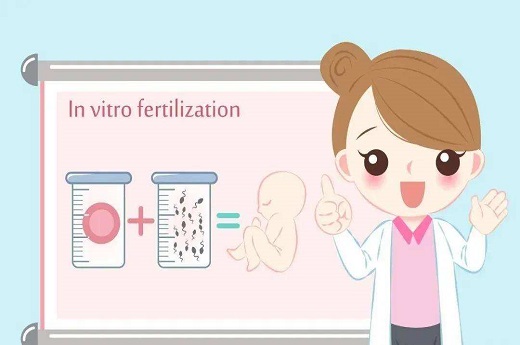Analysis and Improvement Strategies for the Success Rate of IVF Technology
Article Abstract:
In this article, we will analyze the success rate of in vitro fertilization (IVF) technology and provide strategies to improve it. We will discuss the factors affecting the success rate, such as age, lifestyle, and underlying health conditions. Additionally, we will explore the latest advancements in IVF technology and how they contribute to higher success rates. By understanding these factors and implementing effective strategies, we can improve the success rate of IVF and help more couples achieve their dream of having a child.

Factors Affecting IVF Success Rate
The success rate of IVF technology is influenced by various factors, including the age of the woman, the quality of the eggs and sperm, and the overall health of the couple. Age is one of the most significant factors, as the quality and quantity of a woman's eggs decline as she gets older. Younger women generally have a higher success rate with IVF, while women over the age of 35 may face more challenges. Lifestyle factors such as smoking, alcohol consumption, and obesity can also impact the success of IVF. Additionally, underlying health conditions such as polycystic ovary syndrome (PCOS) and endometriosis can affect the success rate of IVF.
试管婴儿技术的成功率受多种因素影响,包括女性年龄、卵子和的质量,以及夫妇的整体健康状况。年龄是最重要的因素之一,因为随着女性年龄的增长,卵子的质量和数量会下降。年轻女性通常在试管婴儿技术的成功率上更高,而35岁以上的女性可能面临更多挑战。吸烟、饮酒和肥胖等生活方式因素也会影响试管婴儿技术的成功率。多囊卵巢综合征(PCOS)和子宫内膜异位症等潜在健康问题也会影响试管婴儿技术的成功率。
Advanced Technologies and Their Impact on Success Rate
Recent advancements in IVF technology have significantly improved success rates for couples undergoing fertility treatment. One such advancement is preimplantation genetic testing, which allows for the screening of embryos for genetic disorders before they are implanted. This can help identify healthy embryos, increasing the chances of a successful pregnancy. Another innovation is time-lapse imaging, which provides continuous monitoring of embryo development without disturbing the embryos. This technology allows embryologists to select the most viable embryos for transfer, leading to higher success rates.

近年来试管婴儿技术的进步显著提高了接受生育治疗的夫妇的成功率。其中一项进步是胚胎植入前基因检测,可以在胚胎植入前对其进行遗传疾病筛查。这有助于筛选出健康的胚胎,增加成功怀孕的几率。另一个创新是时相成像技术,它可以在不干扰胚胎的情况下连续监测胚胎的发育情况。这项技术使胚胎学家能够选择最有活力的胚胎进行移植,从而提高成功率。
Strategies to Improve IVF Success Rate
To improve the success rate of IVF, it is essential to focus on both the physical and emotional well-being of the couple. Providing comprehensive counseling and support services can help reduce stress and anxiety, which can positively impact the outcome of IVF treatment. Additionally, optimizing the ovarian stimulation protocol and embryo transfer techniques can enhance the chances of a successful pregnancy. It is also crucial to address any underlying health conditions and lifestyle factors that may affect fertility. By implementing these strategies, clinics can improve the overall success rate of IVF.
为了提高试管婴儿技术的成功率,关注夫妇的身心健康至关重要。提供全面的咨询和支持服务可以帮助减轻压力和焦虑,从而积极影响试管婴儿治疗的结果。优化卵巢刺激方案和胚胎移植技术可以增加成功怀孕的几率。解决可能影响生育的潜在健康问题和生活方式因素也至关重要。通过实施这些策略,诊所可以提高试管婴儿技术的整体成功率。

Future Trends in IVF Technology
The future of IVF technology holds promising advancements that could further improve success rates. One such trend is the use of artificial intelligence (AI) to analyze embryo development and select the most viable embryos for transfer. AI algorithms can process large amounts of data to make accurate predictions, leading to higher success rates. Additionally, advancements in cryopreservation techniques may allow for better preservation of embryos and eggs, increasing the chances of successful implantation in the future. These future trends have the potential to revolutionize IVF technology and provide new opportunities for couples struggling with infertility.
试管婴儿技术的未来充满了有希望的进展,可以进一步提高成功率。其中一个趋势是利用人工智能(AI)来分析胚胎发育,并选择最有活力的胚胎进行移植。AI算法可以处理大量数据,做出准确的预测,从而提高成功率。冷冻技术的进步可能会使胚胎和卵子得到更好的保存,增加将来成功植入的几率。这些未来的趋势有潜力彻底改变试管婴儿技术,并为不孕症夫妇提供新的机会。
Conclusion
In conclusion, the success rate of IVF technology is influenced by various factors, including age, lifestyle, and underlying health conditions. Recent advancements in IVF technology, such as preimplantation genetic testing and time-lapse imaging, have contributed to higher success rates. By focusing on strategies to improve physical and emotional well-being, optimizing treatment protocols, and addressing future trends, we can continue to improve the success rate of IVF and provide hope for couples facing infertility challenges. With ongoing research and innovation, the future of IVF technology looks promising, and we can expect even higher success rates in the years to come.
试管婴儿技术的成功率受多种因素影响,包括年龄、生活方式和潜在健康问题。最近试管婴儿技术的进步,如胚胎植入前基因检测和时相成像技术,已经提高了成功率。通过专注于改善身心健康、优化治疗方案和应对未来趋势的策略,我们可以继续提高试管婴儿技术的成功率,并为面临不孕症挑战的夫妇提供希望。随着持续的研究和创新,试管婴儿技术的未来看起来充满希望,我们可以期待未来几年的成功率更高。





